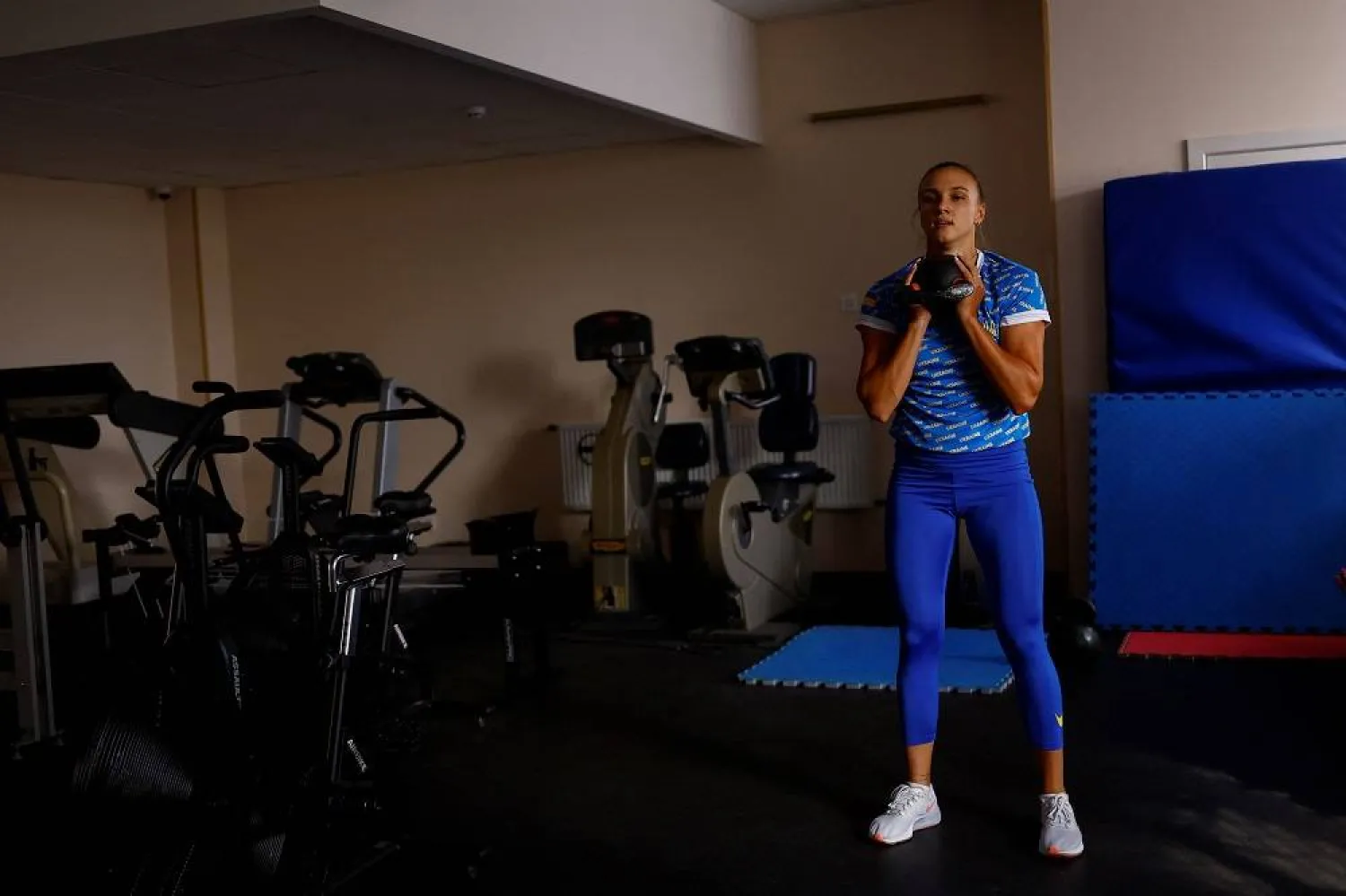For Ukrainian competitors in Paris for the Olympics, joy goes hand in hand with sorrow. Athletes are striving to enjoy the dream of competing at one of the world’s most prestigious sports events while carrying the burden of the war back home.
“When we read news, we feel very upset," said Polina Buhrova, a 20-year-old badminton player at her first Games. “But it’s also our power and our possibility to show how strong we are that we are here, that we are going to fight until the end.”
The living accommodations for athletes from around the world are adorned with flags and slogans at the Olympic village. The Ukrainian house features children's drawings with messages like: “The resilient do not give up and strive for victory” and “Glory to the Ukrainian Armed Forces.” These drawings, a tradition to support Ukrainian soldiers on the frontline, have extended to cheering for their athletes.
“It warms my heart,” said fencer Olga Kharlan, smiling at the drawings. She added, “We want to finish this season successfully because we are doing it for our country.”
Kharlan had a unique route to the Paris Games. She was drawn against Russian fencer Anna Smirnova at last year’s world championships. Smirnova protested after Kharlan refused to shake her hand, and the Ukrainian was disqualified. The International Olympic Committee awarded Kharlan a spot in Paris anyway.
The fencer said preparing for the Games this year was challenging — not just the grueling routine typical for an Olympic athlete but because she had to train abroad due to Russia's war and had not seen her family in a long time.
But she is determined, saying her showing goes far beyond any sports arena.
“We fight and perform for those who, unfortunately, cannot come here because they were killed by Russia,” she said. “This is dedicated to them and to all our defenders.”
This year, Ukraine will be represented by the smallest number of athletes in its history of participation in the Summer Games, with 140 competitors in 26 sports. The most are in athletics, at 25, while there's just the one — Buhrova — in badminton. The war deeply and negatively affected Ukraine’s sports industry.
The International Olympic Committee barred Russians and Belarusians from team sports in Paris, and those who pass a two-step vetting procedure can compete individually as neutrals. They must not have publicly supported Russia's invasion of Ukraine or be affiliated with military or state security agencies.
In Ukraine, Buhrova said that the war undermined the importance of sports and accessibility for many and that she knows many athletes who stopped practicing after Russia’s invasion.
“When you try to choose between life and the sport, you choose life first,” she said. “If government have the choice, it’s understandable they choose to save our lives first, and then support the sport.”
Buhrova, originally from the eastern city of Kharkiv that has been under heavy Russian bombardment for the third year, said she had to evacuate abroad to keep training. The trauma of the war still affects her deeply: She said that even after leaving Ukraine, loud noises often remind her of the bombings back home.
Despite these challenges, she is excited and determined.
“I’m really happy I have the opportunity to show my performance, my best,” she said. “I will try to make my country proud.”
Anastasiya Kozhenkova, a Ukrainian rower who won a gold medal with her team at the 2012 Summer Olympics, said it is a significant achievement for Ukraine to even be represented amid the war.
“In the winter, there were many explosions, and it was very frightening because despite the training, you didn’t know if you would make it to the Olympic Games or not,” she said.
Kozhenkova said Ukrainian President Volodymyr Zelenskyy addressed the team online Wednesday, wishing them success and noting that their participation would help the nation take a break from the harsh reality of the war.
She said she hopes for fewer power cuts and no major attacks so that Ukrainians back home can enjoy the competitions.
“This will be a small relief for our people,” she said. “Maybe if there is electricity and people can cheer, they will experience (positive) emotions.”









